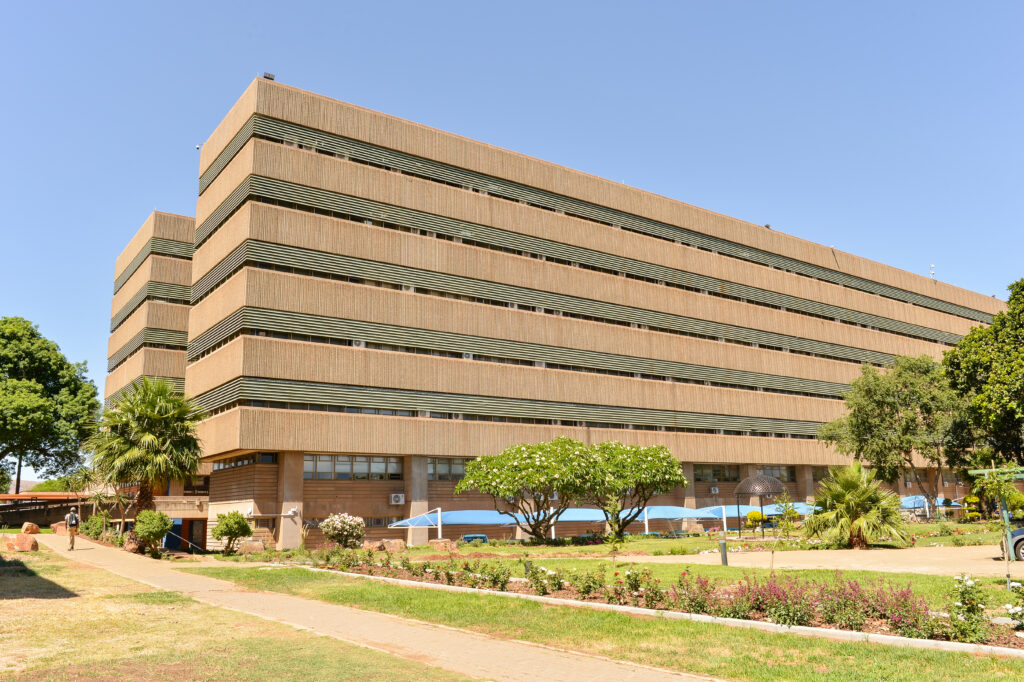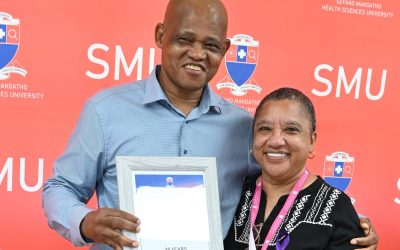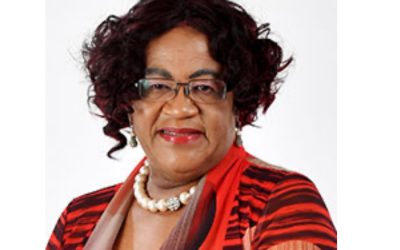In a world where health challenges are increasingly complex and interwoven with social, technological and economic shifts, the need for agile, principled, and visionary healthcare professionals has never been greater. Rising to this challenge is Sefako Makgatho Health Sciences University (SMU)—a university whose impact is not only seen in lecture halls or clinical labs, but in the lives its alumni touch across South Africa and far beyond.
 The true measure of a university lies not only in the qualifications it confers but in the calibre of the individuals it sends into the world. SMU’s contribution to healthcare, both nationally and globally, can be traced through the profound influence of its alumni—many of whom occupy key leadership roles, drive medical innovation, and deliver services to communities that have historically been underserved. They are healthcare professionals, scientists, administrators, policymakers and thought leaders. Together, they represent a living, evolving embodiment of SMU’s mission.
The true measure of a university lies not only in the qualifications it confers but in the calibre of the individuals it sends into the world. SMU’s contribution to healthcare, both nationally and globally, can be traced through the profound influence of its alumni—many of whom occupy key leadership roles, drive medical innovation, and deliver services to communities that have historically been underserved. They are healthcare professionals, scientists, administrators, policymakers and thought leaders. Together, they represent a living, evolving embodiment of SMU’s mission.
From the bustling corridors of Dr George Mukhari Academic Hospital, where alumnus Dr Fhatuwani Godfrey Mbara leads as Chief Executive Officer, to the fast-paced world of emergency and maritime medicine championed by Dr Realeboga Sebitso, SMU graduates continue to take up space in critical sectors. Their work extends into private healthcare, too, as seen in the inspiring journey of Drs Innocent and Dikeledi Chauke, who have built a healthcare legacy rooted in excellence and service.
Beyond borders, SMU-trained professionals are making waves across the continent and in global health arenas. One such example is Elizabeth Itotia, a trailblazer who became Kenya’s first female nuclear pharmacist—her pioneering work revolutionising cancer care in her country. Whether identifying new virus variants, developing niche specialisations, or strengthening health systems in resource-limited settings, SMU alumni are increasingly recognised not just as participants in healthcare conversations, but as leaders shaping the global agenda.
But these achievements are not accidental. They are the outcome of a university culture deeply committed to excellence, equity and service. SMU’s curriculum is not only aligned with the demands of modern healthcare—it is embedded in the realities of South African society. Students are trained not just to treat illness, but to understand the systems and structures that produce health inequalities. They are taught to think critically, act ethically, and serve selflessly.
This ethos extends far beyond the academic. At SMU, leadership is nurtured through community engagement, student governance, entrepreneurship, and research. As a result, graduates emerge not only as competent professionals but as compassionate changemakers—individuals ready to lead, adapt and innovate in whichever space they find themselves.
Crucially, SMU alumni carry with them a sense of responsibility. Whether practising in urban hospitals or rural clinics, engaging in public service, or contributing to cutting-edge research, their work is underpinned by a shared value: to serve. And in doing so, they reaffirm SMU’s founding commitment—to improve the health and quality of life of all people, particularly those most in need.
The impact of SMU is, therefore, not confined to its campus. It travels through every patient healed, every system improved, and every life touched by one of its graduates. It is a living legacy, renewed each year as new cohorts enter the profession and old ones rise to new heights.
As SMU looks to the future, its alumni remain its greatest ambassadors—proof that a university rooted in service, excellence, and transformation can indeed shape the world. Their journeys are not only testimonies of personal success but also affirmations of the institution that moulded them. In their hands, the future of healthcare is not only possible—it is already unfolding.
By Tshimangadzo Mphaphuli



